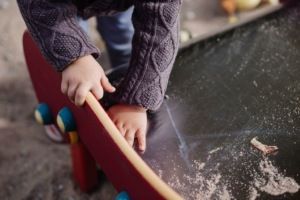News
Education worker union: Why are daycare institutions keeping open?
This article is more than 5 years old.
BUPL can’t comprehend why the smallest kids can still go to daycare while school children must stay at home

“My mother is a doctor. That’s why” (photo: Pixabay)
When the government unveiled its latest COVID-19 restrictions yesterday, there were probably a few parents following the press conference with gusto.
PM Mette Frederiksen revealed that while all school children are to be sent home on December 21, daycare institutions would remain open.
This decision has been met with consternation by Denmark’s education worker union, BUPL.
“I’m very surprised that the daycare institutions are not mentioned at all. We’re experiencing immense concern from our members and outright angst for how they will make it through winter,” Elisa Rimpler, head of BUPL, told TV2 News.
“The coronavirus epidemic has applied great pressure on the daycare workers – to the point where it has practically become inhumane. So something needs to be done.”
According to BUPL, 3.52 percent of daycare staff have tested positive for COVID-19 – which is a higher rate than among elderly care workers and school teachers.
Rimpler urged parents to keep their small children at home.
READ ALSO: New restrictions in! Denmark closing down significantly over Christmas
Government not budging
However, the government has underscored the importance of keeping the daycare institutions open.
“We really need you to take good care of the children who need to be cared for over Christmas,” children minister, Pernille Rosenkrantz-Theil, wrote on Facebook.
“The health authorities have deemed that it is justifiable and important that the children who need to be minded over Christmas, can do so. And over Christmas, there are far fewer children in daycare than normal.”
Health minister, Magnus Heunicke, explained that there was a critical work force that needed help with their kids while they were at work.
“We still needs workers for the health sector, elderly care, pharmacies, police, supermarkets and to drive our trains. And their children need to be cared for,” said Heunicke.










































